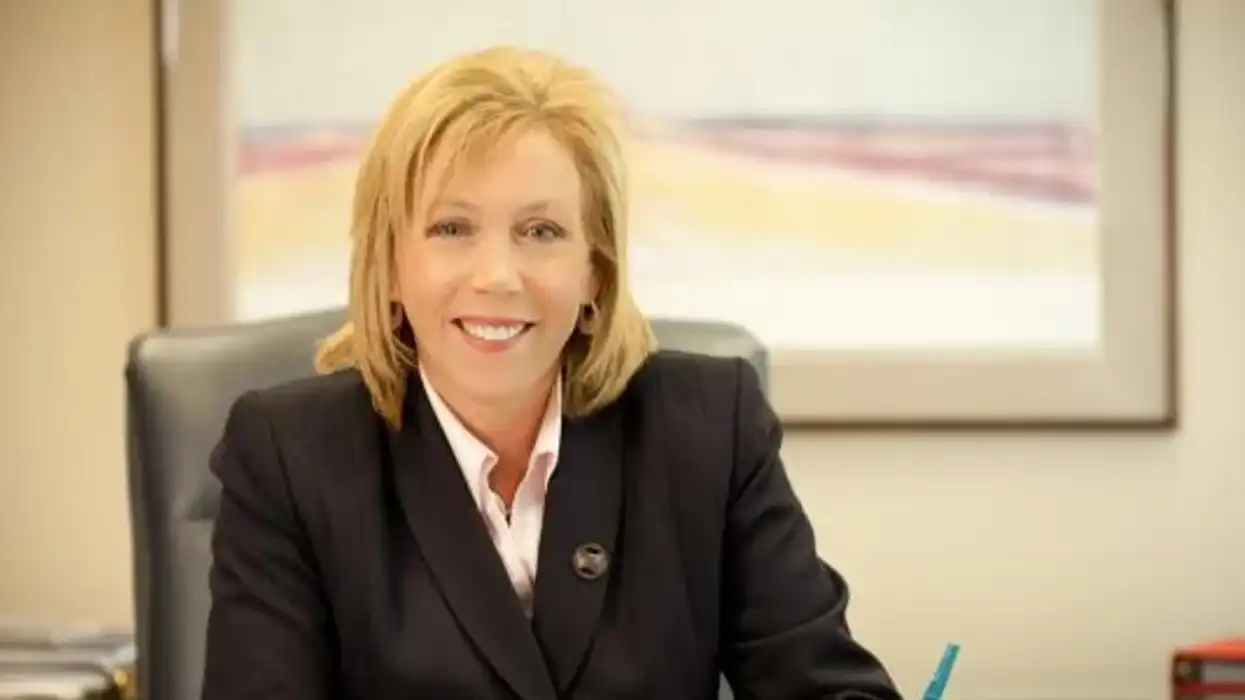Griffiths is the national editor of Independent Voter News, where a version of this story first appeared.
California voters have a chance to make history this year by electing independent leaders to the state’s top executive offices for the first time in modern history. Among these independents is a gay, tough-on-crime, former Republican who supports abortion rights and is running for attorney general.
And then there's No Party Preference gubernatorial candidate Michael Shellenberger, who has tremendous financial backing and could beat out a weak Republican field with a message that targets Democrats’ handling of homelessness. If he is able to advance to November, the former Democrat could bring in support from across the political spectrum and give the incumbent, Democrat Gavin Newsom, a much more formidable challenge than he faced against his staunchly conservative opponent in the recall.
But the contest that may present the more probable path to a political upheaval going into the June 7 primary is not for the governor’s seat. It is the race for attorney general.
Sacramento District Attorney Anne Marie Schubert is running for attorney general as an NPP candidate, and unlike any independent candidate before her, she has garnered near-universal backing from California’s top law enforcement organizations. In other words, she may not have the power of the party institutions, but she has critical support in a race where crime is as big an issue as ever.
Schubert changed her affiliation from Republican to independent in 2018 and is prominently known throughout California for prosecuting the Golden State Killer. She is running against two Republicans and Democratic incumbent Rob Bonta.
Why could Schubert's matchup with Bonta present a serious challenge that a Republican challenger cannot offer?
Well, it’s California. With abortion rights taking center-stage following the leaked draft of a potential Supreme Court ruling in Dobbs v. Jackson, being anti-abortion (or a Republican for that matter) will be a non-starter with the California electorate. But Schubert, like Bonta, is supports abortion rights. She’s also gay.
These two factors could give disgruntled Democrats and left-leaning independents who fear of the Republican Party’s positions on social issues a viable alternative.
Under California’s nonpartisan top-two primary, the general election will be a one-on-one race between Bonta and one other challenger. Bonta knows that his path to victory against a Republican will be a much easier one, and is spending money to make sure Republicans vote for the most anti-abortion Republican in the race.
Against a Republican, Bonta would be able to duck widespread concerns over a rise in crime observed by most California voters, and his support for Proposition 47, which a majority of voters want to change. Proposition 47 reduced the threshold for some drug and theft offenses to misdemeanors, including more than doubling the amount stolen to charge a person with felony theft.
In its endorsement of Schubert, the San Diego Union Tribune writes:
“Sacramento County District Attorney Anne Marie Schubert would be a far more formidable rival. She’s a Republican-turned-independent, pro-choice, even-keeled disdainer of Donald Trump who was the first gay person elected to countywide office in Sacramento. In interviews, she’s wondered what’s progressive about telling people “that domestic violence is a nonviolent crime.” But she’s hardly a law-and-order caricature. She faults the state for inadequate rehabilitation funding to help offenders rebound. In our Q&A, she praised state laws limiting officers’ use of force and promoting transparency.”
Could Schubert, who believes Californians have grown “ sick of politics ” become the first NPP candidate to be elected attorney general?
In a head-to-head race against a Democrat who has been an advocate for far-left policies and prosecutors that have become increasingly unpopular, we might find out this November.
If Schubert can pull off a top-two finish on June 7, her nonpartisan approach to prosecution and law could help her win over Democrats dissatisfied with Bonta, Republicans who like her aggressive approach to violent crime, and independents who are just fed up with partisans on both sides of the isle.
An independent has already come close to winning a statewide election in California under the state’s nonpartisan top-two primary. Republican-turned-independent Steve Poizner nearly beat Democrat Ricardo Lara for insurance commissioner in 2018 in the midst of a blue wave. But he did not have the kind of institutional support that Schubert has garnered, the independent resume -- nor the timing.
Political analysts predict a red wave this year. But in California, Schubert could represent a shifting tide that brings in a wave of independence.




















Trump & Hegseth gave Mark Kelly a huge 2028 gift